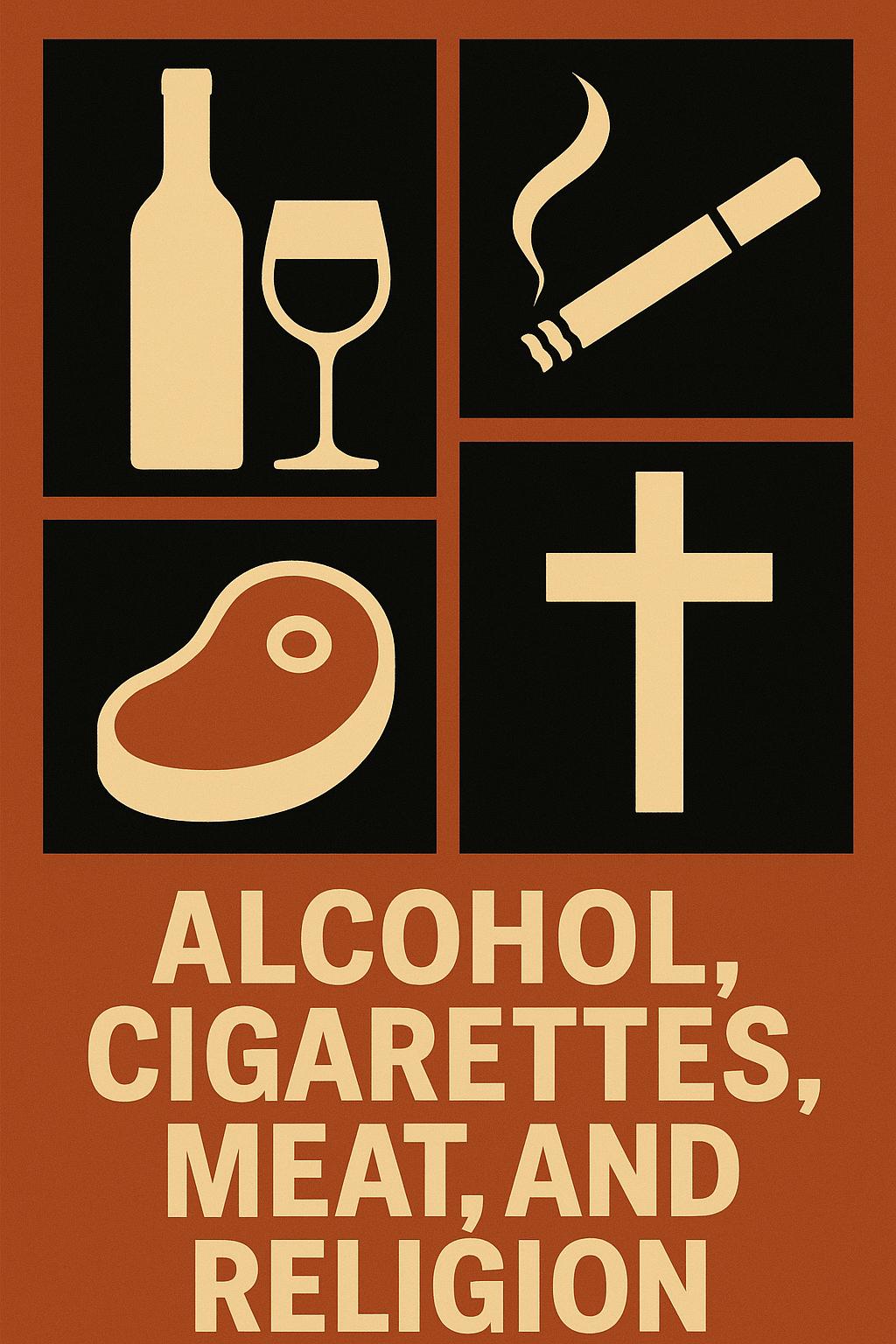A politician today can lie daily, cheat openly, start illegal wars, drown society in surveillance, and still be reelected. But if he dares to ban alcohol, raise the price of meat, restrict cigarettes, or mock religion—he is finished.
These are the untouchable icons. Not justice, not freedom. Not truth. Just four things: alcohol, tobacco, flesh, and faith. They survive every reform, every scandal, and every regime. And they are not debated. They are defended.
And that tells us everything about modern political psychology.
The vice that votes
Alcohol is a social poison. It kills brain cells, crashes cars, ruins families, and strains hospitals. But try banning it. Even suggesting limits invites outrage. Not because it makes sense—but because it touches identity.
Cigarettes? Same story. Everyone knows they kill. Yet they remain a cultural pillar in many communities. Their regulation is tolerated. Their removal is sacrilege.
Meat is worse. It requires more land, more water, more suffering than any other food. But it is not food anymore. It is culture, it is manhood. It is nostalgia. Tax it or reduce it, and you are accused of attacking the poor.
And then there is religion.
Faith without proof, power without restraint
Religion is not a taste. It is a story—a cosmic fantasy. Yet it receives more political protection than any other human belief system. Governments fund religious schools. Churches pay no taxes. Public ceremonies open with prayers. Presidents swear oaths on sacred books filled with genocide and hallucination.
Unlike alcohol or cigarettes, religion claims truth. It claims to explain existence. It claims moral authority. But it provides no evidence. And despite this vacuum, it demands—and receives—respect.
A politician can mock science, violate law, or commit adultery. But he cannot say “God is a myth.” Not if he wants to win.
That alone proves its absurdity.
The Trumpist lesson
During the Trump era, the limits of political sin were shattered. Lies became strategy. Infidelity became irrelevant. Wars were sold with cartoons. Surveillance became daily life. Deepfakes blurred truth. Disinformation filled every platform. Corruption wasn’t hidden. It was worn as proof of power.
But none of these things caused public rebellion.
The moment a vegan protester touched a steakhouse, the crowd erupted. When a cigarette tax passed, rural counties revolted. And when a comedian mocked Jesus or Muhammad, news outlets demanded apologies.
The true red lines of democracy are not moral. They are visceral. They are about habit, not principle. A man can dismantle democracy—so long as he does not touch the alcohol tap.
The illusion of religion
Among these four icons, religion is the most absurd. You can argue alcohol calms nerves. Meat provides nutrition. Cigarettes offer addiction. But religion? It offers nothing you cannot build yourself.
You do not need religion to be moral; you do not need it to belong. You do not need it to understand death or love or pain.
What you need is honesty. What you need is community, reflection, and justice. And none of that requires angels, burning bushes, or eternal torture chambers.
Yet religion survives. Not because it makes sense. But because it comforts people. And comfort, no matter how delusional, sells better than truth.
The outrage algorithm
Why are these four untouchable? Because they tie into identity. Not reason. Not evidence. But raw, tribal feeling.
People are less afraid of losing freedom than they are of losing routine. They will accept surveillance, but not a meatless menu. And they will endure censorship, but not a cigarette ban. They will tolerate lies from above—but not blasphemy from below.
Politicians know this. So they lie, steal, exploit, and rig—while raising a glass, blessing a flag, smoking a cigar, and quoting scripture.
It works every time.
Conclusion – comfort over truth
We live in a world where people tolerate authoritarianism—so long as their favorite vices remain untouched. They cling to the familiar while losing everything else.
Alcohol, cigarettes, meat, and religion are not just personal choices. They are shields. They protect the illusion that life is still under control.
But truth does not live in smoke, flesh, or fantasy. And those who cling to comfort will never see the chains tightening around them.
The real blasphemy is not against God. It is against awareness.

Leave a Reply